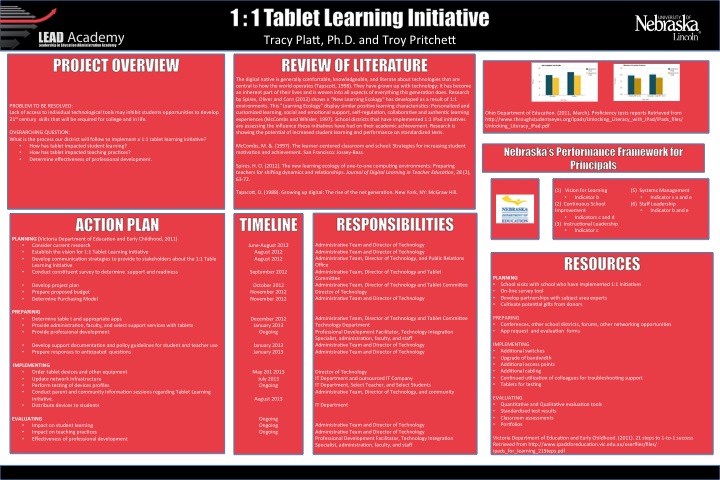
1 : 1 Tablet Learning Initiative
Tracy Platt and Troy Pritchett
Lack of access to individual technological tools may inhibit students opportunities to develop 21st century skills that will be required for college and in life.
What is the process our district will follow to implement a 1:1 tablet learning initiative?
View Project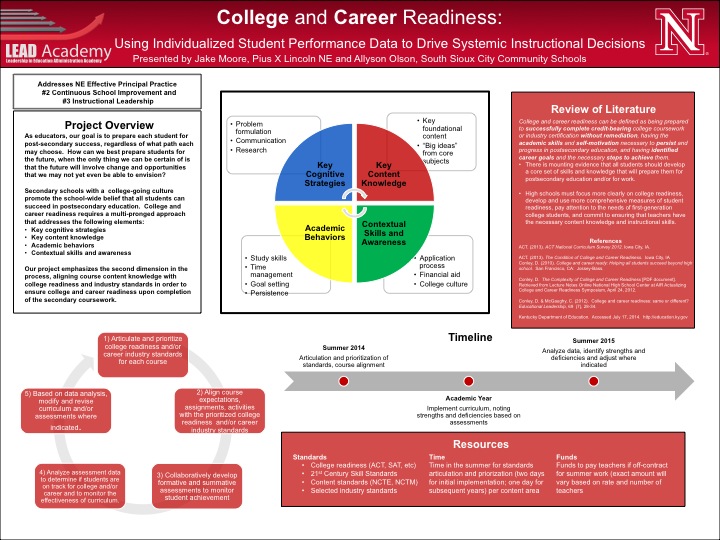
College and Career Readiness: Using Individualized Student Performance Data to Drive Systemic Instructional Decisions
Jake Moore and Allyson Olson
As educators, our goal is to prepare each student for post-secondary success, regardless of what path each may choose. How can we best prepare students for the future, when the only thing we can be certain of is that the future will involve change and opportunities that we may not yet even be able to envision?
View Project
Empowering teachers by developing a systemic approach to analyze and utilize data to guide instructional decisions
Jackie Nielsen and Carol Oltman
Many teachers, especially at the secondary level, are overwhelmed with data and are unsure how to evaluate, identify, and analyze the critical information. As Dr.
View Project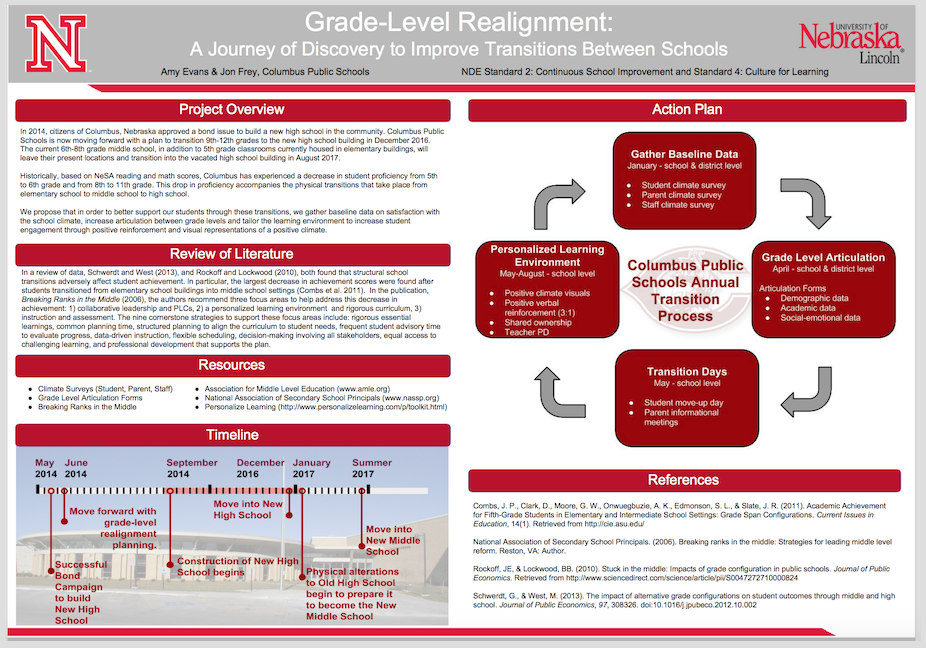
Grade-Level Realignment: A Journey of Discovery to Improve Transitions Between Schools
Amy Evans
Jon Frey
In 2014, citizens of Columbus, Nebraska approved a bond issue to build a new high school in the community. Columbus Public Schools is now moving forward with a plan to transition 9th-12th grades to the new high school building in December 2016.
View Project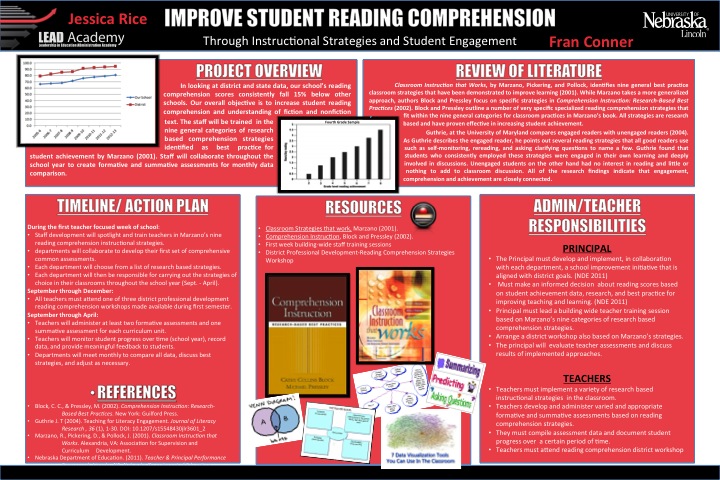
IMPROVE STUDENT READING COMPREHENSION: Through Instructional Strategies and Student Engagement
Jessica Rice and Fran Connor
In looking at district and state data, our school’s reading comprehension scores consistently fall 15% below other schools.
View Project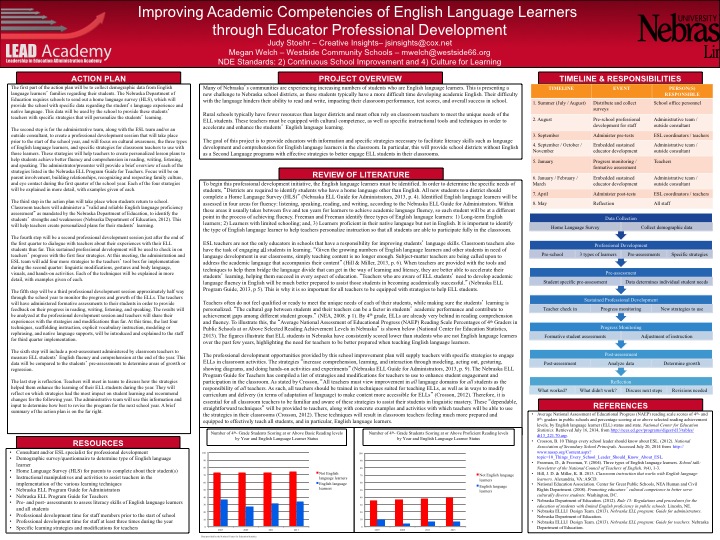
Improving Academic Competencies of English Language Learners through Educator Professional Development
Judy Stoehr and Megan Welch
Many of Nebraska’s communities are experiencing increasing numbers of students who are English language learners. This is presenting a new challenge to Nebraska school districts, as these students typically have a more difficult time developing academic English.
View Project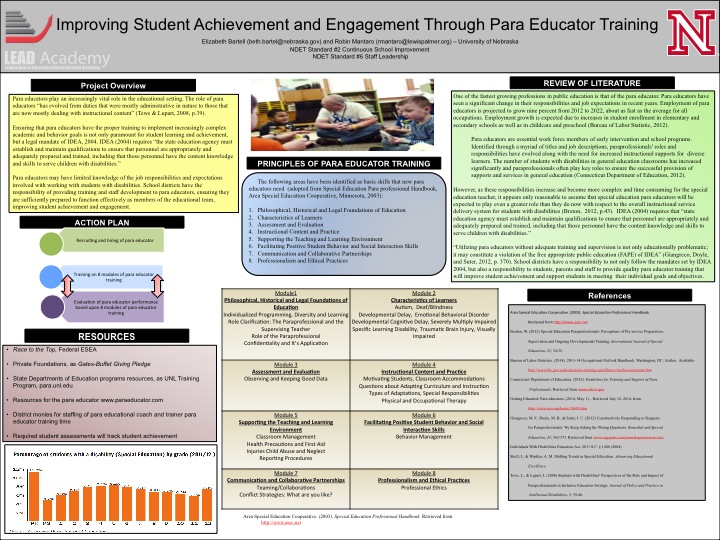
Improving Student Achievement and Engagement Through Para Educator Training
Elizabeth Bartell and Robin Mantaro
Para educators play an increasingly vital role in the educational setting. The role of para educators “has evolved from duties that were mostly administrative in nature to those that are now mostly dealing with instructional content” (Tews & Lupart, 2008, p.39).
View Project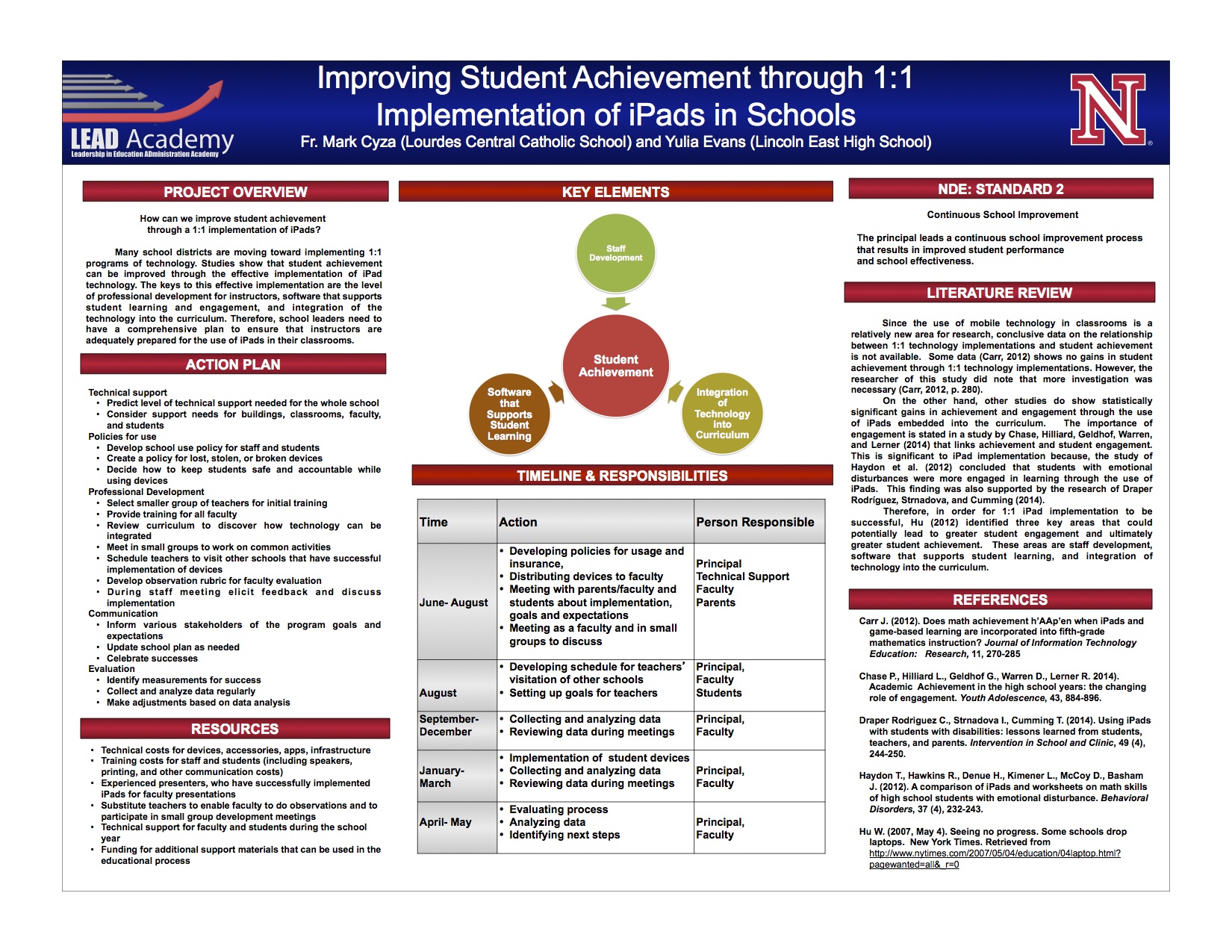
Improving Student Achievement through 1:1 Implementation of iPads in Schools
Fr. Mark Cyza and Yulia Evans
How can we improve student achievement through a 1:1 implementation of iPads?
View Project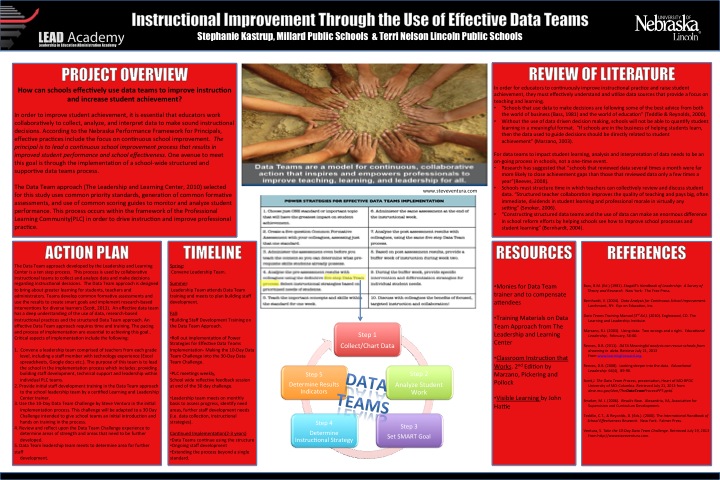
Instructional Improvement Through the Use of Effective Data Teams
Stephanie Kastrup and Terri Nelson
How can schools effectively use data teams to improve instruction and increase student achievement?
View Project
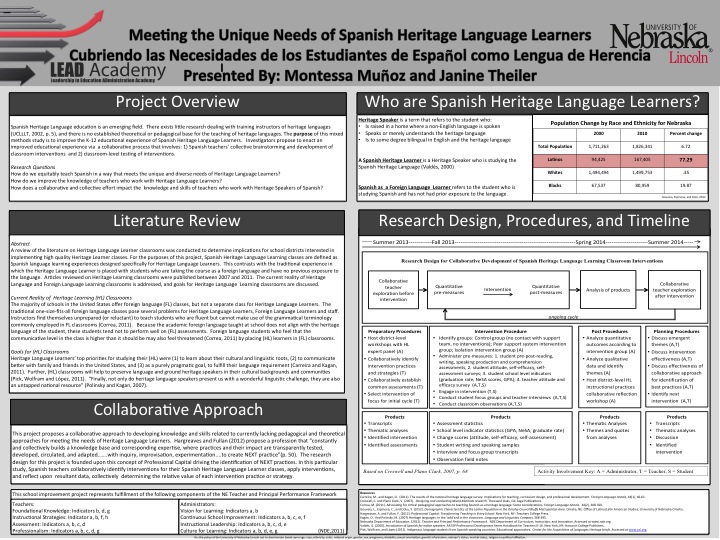
Meeting the Unique Needs of Spanish Heritage Language Learners - Cubriendo las Necesidades de los Estudiantes de Español como Lengua de Herencia
Montessa Muñoz and Janine Theiler
Spanish Heritage Language education is an emerging field. There exists little research dealing with training instructors of heritage languages (UCLLLT, 2002, p. 5), and there is no established theoretical or pedagogical base for the teaching of heritage languages.
View Project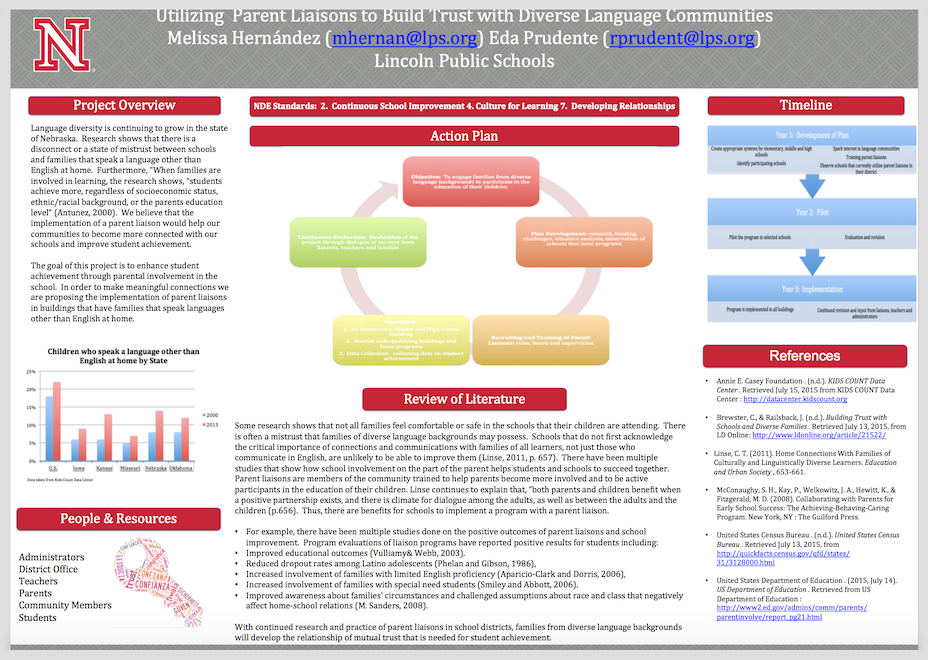
Utilizing Parent Liaisons to Build Trust with Diverse Language Communities
Melissa Hernández
Eda Prudente
Language diversity is continuing to grow in the state of Nebraska. Research shows that there is a disconnect or a state of mistrust between schools and families that speak a language other than English at home. We believe that the implementation of a parent liaison would help our communities to become more connected with our schools and improve student achievement.
View Project